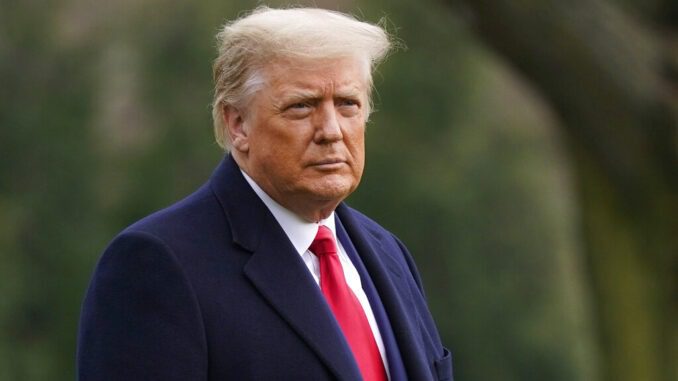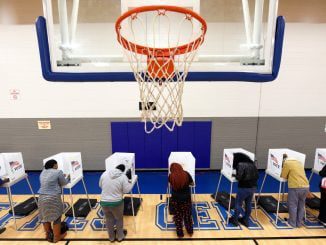
WEST PALM BEACH, Fla. — President Donald Trump signed a $900 billion pandemic relief package Sunday, ending days of drama over his refusal to accept the bipartisan deal that will deliver long-sought cash to businesses and individuals and avert a federal government shutdown.
The massive bill includes $1.4 trillion to fund government agencies through September and contains other end-of-session priorities such as money for cash-starved transit systems and an increase in food stamp benefits.
Trump announced the signing in a statement Sunday night that spoke of his frustrations with the COVID-19 relief for including only $600 checks to most Americans instead of $2,000. He also complained about what he considered unnecessary spending by the government at large.
“I will sign the Omnibus and Covid package with a strong message that makes clear to Congress that wasteful items need to be removed,” Trump said in the statement.
Republicans and Democrats swiftly welcomed Trump’s decision to sign the bill into law.
“The compromise bill is not perfect, but it will do an enormous amount of good for struggling Kentuckians and Americans across the country who need help now,” said Senate Majority Leader Mitch McConnell. “I thank the President for signing this relief into law.”
In the face of growing economic hardship, spreading disease and a looming shutdown, lawmakers on Sunday had urged Trump to sign the legislation, then have Congress follow up with additional aid. Aside from unemployment benefits and relief payments to families, money for vaccine distribution, businesses, cash-starved public transit systems and more is on the line. Protections against evictions also hung in the balance.
Republican Sen. Pat Toomey of Pennsylvania said he understood that Trump “wants to be remembered for advocating for big checks, but the danger is he’ll be remembered for chaos and misery and erratic behavior if he allows this to expire.”
Toomey added: “So I think the best thing to do, as I said, sign this and then make the case for subsequent legislation.”
Washington had been reeling since Trump turned on the deal. Fingers pointed at administration officials, including Treasury Secretary Steven Mnuchin, as lawmakers tried to understand whether they were misled about Trump’s position.



